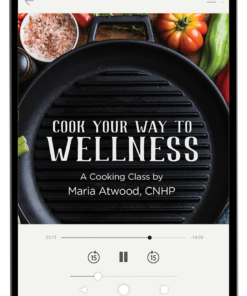For many years I’ve been under the impression that seniors were the only ones who needed to do everything possible to preserve their precious brain function. After all, it makes every conversation and every single day something we can keep remembering! Yes, remembering is possibly the single most important function that allows us to do what we do, to love those we love, and to live a life filled with both the happy and sad memories that we all have.
Although the senior population (those 60 and over) are hit hardest with memory loss, I have seen people in their 50s and under struggle with remembering. Unfortunately, some of us begin to experience memory loss way too early in life. In this article I discuss things you can do to prevent further memory deterioration or even avoid it altogether. So please read on—if not for yourself, then for a loved one.
Learning About Memory and the Brain
You can find thousands of articles online that explain the workings of the human brain on a much deeper level than I can here, and I invite you to do some self-study. However, due to the limited space in this article, I will be brief about the intricacies of brain function. I will instead focus on important information on the best ways to nourish and supplement this unique organ to maintain its profound memory power for the longest term possible.
Long-Term Memory
The website Simply Psychology offers the best and least medical description of the types of long-term memory:
Procedural memory: “Part of the implicit long-term memory responsible for knowing how to do things, i.e., memory of motor skills. It does not involve conscious (i.e., it’s unconscious, automatic) thought and is not declarative. For example, procedural memory would involve knowledge of how to ride a bicycle.”
Semantic memory: “Part of the explicit long-term memory responsible for storing information about the world. This includes knowledge about the meaning of words, as well as general knowledge. For example, London is the capital of England. It involves conscious thought and is declarative. The knowledge that we hold in semantic memory focuses on ‘knowing that’ something is the case (i.e., declarative). For example, we might have a semantic memory for knowing that Paris is the capital of France.”
Episodic memory: “Part of the explicit long-term memory responsible for storing information about events (i.e., episodes) that we have experienced in our lives. It involves conscious thought and is declarative. An example would be a memory of our first day at school. The knowledge that we hold in episodic memory focuses on ‘knowing that’ something is the case (i.e., declarative). For example, we might have an episodic memory for knowing that we caught the bus to college today.”
Short Term Memory
The website Very Well Mind offers the best and least medical description of short-term memory. Here is their quick overview:
- Short-term memory is very brief. When short-term memories are not rehearsed or actively maintained, they last mere seconds.
- Short-term memory is limited. It is commonly suggested that short-term memory can hold seven plus or minus two items.
Let’s Get Down to Brass Tacks
Although the brain is the most complex organ of the human body, we don’t need to understand all of its intricate parts for it to perform at its peak. It should come as no surprise that the brain is like any part of the body in that there are four universal, essential practices that are crucial to preserving and improving brain function, which I discuss below. If you’re missing any one of the four, you should change your ways! (Smile)
In the article “The 4 Best Ways to Maintain Your Brain,” the website Harvard Health states that “although the areas of the brain associated with memory and reason shrink with age, you can still add brain cells and build new connections between those cells throughout your life.”
The Four Essential Practices for More Brain Power
The four essential actions for brain health each have specific requirements for nourishing the brain properly and effectively, as noted in the Harvard Health article I quote above. Of course, all of these practices are great for our overall health, but my emphasis here is on the specific needs of the brain. These practices are as follows:
All of the quotes below are from the article published by Harvard Health. However, as I do not agree with their diet recommendations, I will discuss the best diet for the brain down below.
Best exercise for the brain: “‘The best evidence so far is for aerobic exercise and physical fitness,’ Dr. Dickerson says. Not only have scores of observational studies linked regular aerobic exercise to reduced risk of dementia, the results of several randomized controlled clinical trials and a few imaging studies indicate that aerobic exercise increases brain mass and improves reasoning ability. In studies of healthy people that showed the greatest positive effect, people got an average of 30 minutes of aerobic exercise five times a week over a year.”
Could this have something to do with increasing the critical nutrient oxygen to the brain?!
Social connectedness: “Evidence from observational studies linking reduced risk of dementia with social connectedness dates to the 1990s. As researchers have looked into these connections more deeply, they have discovered that variety and satisfaction in social contacts is more important than the size of a person’s social network.”
Mental stimulation: “There is some evidence that challenges like playing a musical instrument or learning another language have more benefits than repetitive exercises like crossword puzzles. Although ‘brain-training’ programs are a multimillion-dollar industry, there is no conclusive evidence that any of them improves memory or reasoning ability. ‘We don’t know whether playing brain games is helpful,’ Dr. Dickerson says. ‘Getting together with family and friends to play cards may be as good.’”
Personal comment: I find that reading and writing are also highly stimulating to say the least as they involve many of the different functions of the brain. I also make an effort to cook at least one new recipe a week.
Best Diet for the Brain: Whole, Organic Foods
As I mention above, I definitely do not agree that the Mediterranean diet recommended in the Harvard Health article is the best diet for the brain. However, rather than expound on its inadequacies, I will instead—as a nutritionist and member and chapter leader of the Weston A. Price Foundation— offer my recommendation for these 14 super foods. I am also a strong supporter of concentrated whole food supplements from Standard Process. (You can see my specific Standard Process recommendations for the brain below.) And last but certainly not least, I highly recommend the writings of Dr. Royal Lee.
Oh, and let’s not forget two very simple solutions for keeping that brain happy and satisfied. The first one of course is fresh, clean water—without all the nasty chemicals we often get from our sink faucet. You can find many excellent water systems as well as good bottled water such as Eldorado Springs. The human brain is comprised of 77–78 percent water, so we must be sure to provide it with the freshest water we can.
The second vitally important ingredient is to feed your brain ketones, which cross the brain barrier. Dr. Bruce Fife has written extensively on this subject. He recommends at least 3–4 tablespoons of coconut oil on a daily basis. Dr. Fife’s book Ketone Therapy is an easy read that will provide a huge boost to your precious brain.
Brain Supplementation
The best supplementation for the brain can be found in a wonderful new book published by Selene River Press: Adjuvant Protocols for Healing: A Practitioner’s Manual by Joseph Antell, CN. This is a must-have book if you are a holistic practitioner or want to learn about Standard Process supplements and many other topics important to health.
Brain Protocol Supplements
Before you look at the protocols below, I must warn you: Do NOT buy any Standard Process supplements from online websites. There is no guarantee they were stored properly in a cool/dry environment, and they may be past their expiration date. Also, it is very important to see a prescribing practitioner who you can follow up with.
Senior Citizen Protocol
Personal note: Although this protocol is recommended for seniors, I believe that anyone of any age experiencing brain issues could use it upon the recommendation of a holistic practitioner who carries Standard Process.
The recommended dosages for this protocol are found in Adjuvant Protocols for Healing (p. 313). Your practitioner can recommend which of the supplements would best serve your particular condition. All products are from Standard Process and MediHerb. They are listed in order of importance.
Senior Citizen Protocol:
- Ferrofood
- Cardio-Plus
- Vasculin (if low blood pressure)
- Super-EFF
- Trace Minerals-B12
Also consider:
- Neurotrophin PMG
- Gotu Kola Complex (MediHerb)
- Cyruta Plus
- Lactic Acid Yeast
- Boswellia Complex (MediHerb)
- Paraplex
Brain Blend
The following MediHerb formulation is recommended for Alzheimer’s, blood clots, and cerebral palsy (p. 397).
5 ml (1 tsp) each:
In closing, I can only hope that the information above will put you on a new path to better brain health and make positive changes in your life before it’s too late!
[xyz-ihs snippet=”Begin-Authors-Note”]Afterthoughts from the Traditional Cook
Our Brain
Compared to our bodies,
our brains are quite large.
Require nutrients and rest,
to function and charge.
Billions of neurons,
and countless connections.
Sending out signals,
in all the directions.
The cerebral cortex,
helps us all reason.
Memory, attention,
no matter the season.
Signals are responsible,
for the simplest of actions.
Chemicals aid,
in mutual attractions.
The structure is largely,
dependent on genes.
We’re fortunate to possess,
these remarkable machines.
Through our life experiences,
our brain changes and thrives.
It’s a beautiful instrument,
that helps us survive.
—“Our Brain,” Martin Dejnicki, treecards blog
[xyz-ihs snippet=”End-Authors-Note”]Disclaimer from Maria Atwood, CNHP: I am a Certified Natural Health Professional, CNHP, not a medical doctor. I do not diagnose, prescribe for, treat, or claim to prevent, mitigate, or cure any human diseases. Please see your medical doctor or health practitioner prior to following any recommendations I make in my blog posts or on my website.
Images from iStock/Highwaystarz-Photography (main), AndreyPopov (string on finger), Horsche (woman painting).





